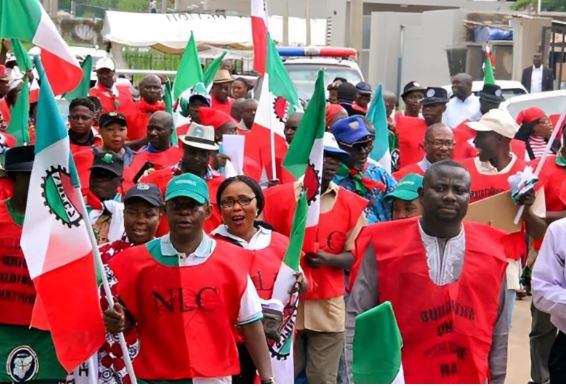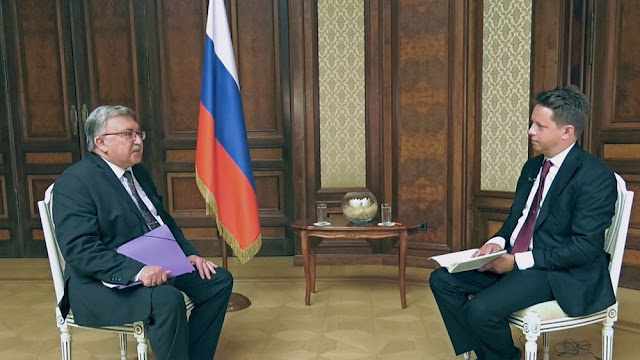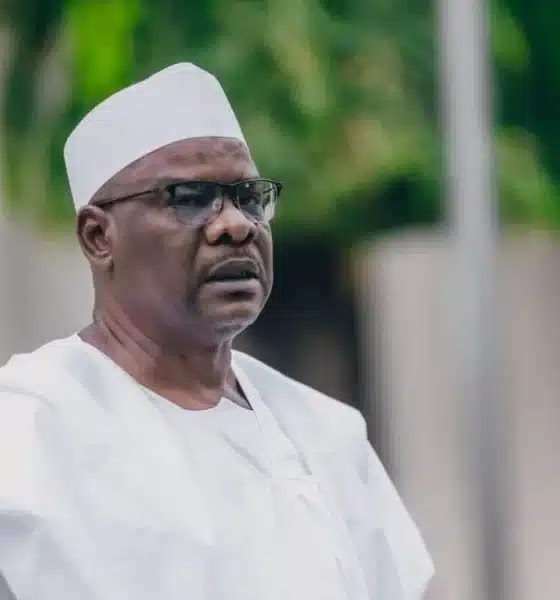In a unified and resolute stance, organized labour in Nigeria, alongside workers across various sectors, has called for an immediate review of the N70,000 national minimum wage, citing its gross inadequacy in addressing the current economic realities. The demand, which has gained significant traction, stems from the rising cost of living, persistent inflation, and the depreciating value of the naira, which have collectively eroded the purchasing power of Nigerian workers. Labour leaders argue that the N70,000 minimum wage, signed into law in July 2024, is no longer sustainable and fails to provide workers with a dignified standard of living. This development has sparked intense discussions across the nation, with stakeholders urging the federal government to act swiftly to avert potential industrial unrest.
Background of the Minimum Wage Debate
The issue of minimum wage in Nigeria has long been a contentious one, with workers and labour unions frequently advocating for wages that reflect the economic realities of the time. The N70,000 minimum wage, which replaced the previous N30,000 wage, was the outcome of protracted negotiations between the federal government, organized labour, and the private sector. The agreement, reached in July 2024, was initially hailed as a significant improvement, as it more than doubled the previous wage. However, barely a year after its implementation, the consensus among workers is that the amount is insufficient to meet basic needs.
The Nigerian economy has faced significant challenges in recent years, including high inflation rates, currency devaluation, and the removal of fuel subsidies. These factors have driven up the prices of essential goods and services, including food, transportation, and housing. According to data from the National Bureau of Statistics (NBS), Nigeria’s inflation rate stood at 32.15% in August 2025, with food inflation even higher at 37.52%. This has placed immense pressure on workers, particularly those earning the minimum wage, who struggle to afford basic necessities such as food, healthcare, and education for their families.
The call for a wage review is not new. Nigeria’s labour unions, primarily the Nigeria Labour Congress (NLC) and the Trade Union Congress (TUC), have consistently advocated for wages that align with the cost of living. The N70,000 minimum wage was intended to provide relief to workers, but the rapid deterioration of economic conditions has rendered it inadequate. Labour leaders argue that the government’s failure to address the underlying causes of inflation and economic instability has exacerbated the plight of workers, necessitating an urgent review of the wage structure.
Labour’s Position: A Call for Urgent Action
The leadership of organized labour has been vocal in its demand for a new minimum wage. The NLC, led by its President, Comrade Joe Ajaero, has emphasized that the N70,000 minimum wage is no longer a living wage. In a recent statement, Ajaero highlighted the dire economic conditions faced by workers, noting that the rising cost of basic commodities has made it impossible for workers to survive on the current wage. “The N70,000 minimum wage was negotiated under a different economic reality. Today, that amount cannot buy a bag of rice or cover the transportation costs for a month,” Ajaero said.
The TUC, led by its President, Comrade Festus Osifo, has echoed similar sentiments, describing the minimum wage as a “poverty wage” that fails to meet the needs of workers. Osifo argued that the government must prioritize the welfare of workers, who are the backbone of the economy, by implementing a wage that reflects the current economic challenges. He called for a tripartite committee, comprising representatives from the government, labour, and the private sector, to be reconvened to negotiate a new minimum wage.
Labour leaders have also pointed to the disparity between the earnings of political officeholders and those of ordinary workers. While workers struggle to survive on N70,000, public officials enjoy substantial salaries, allowances, and perks, which has fueled resentment among the workforce. The NLC has accused the government of prioritizing the welfare of the political elite while neglecting the needs of ordinary Nigerians. This sentiment has resonated with workers, who feel marginalized in a system that appears to favor the affluent.
Workers’ Plight: Stories from the Ground
The demand for a minimum wage review is not merely a theoretical debate but a reflection of the daily struggles faced by millions of Nigerian workers. Across the country, workers in both the public and private sectors have shared stories of hardship, underscoring the urgent need for change.
For instance, Mrs. Funmilayo Adebayo, a civil servant in Lagos, described her struggle to provide for her family of four on the N70,000 minimum wage. “By the time I pay for transportation, school fees, and food, there is nothing left. We are barely surviving,” she said. Adebayo’s story is not unique. Many workers report resorting to borrowing or taking on multiple jobs to make ends meet. The rising cost of transportation, driven by fuel price hikes, has further compounded their challenges, with many spending a significant portion of their income on commuting to work.
In the private sector, the situation is equally dire. Mr. Chinedu Okonkwo, a factory worker in Ogun State, explained that the N70,000 wage is insufficient to cover his rent, medical expenses, and children’s school fees. “The prices of everything have gone up, but my salary remains the same. How am I supposed to survive?” he asked. Okonkwo’s frustration reflects the broader sentiment among workers, who feel that the government has failed to address their economic plight.
The informal sector, which employs a significant portion of Nigeria’s workforce, is also affected. Traders, artisans, and small business owners have reported a decline in purchasing power, as their customers—many of whom are workers earning the minimum wage—can no longer afford their goods and services. This has created a ripple effect across the economy, further highlighting the need for a wage review.
Economic Context: Why the N70,000 Wage Is Insufficient
To fully understand the demand for a minimum wage review, it is essential to examine the economic factors that have rendered the N70,000 wage unsustainable. Nigeria’s economy has been grappling with multiple challenges, including:
Inflation: The persistent rise in inflation has significantly eroded the purchasing power of the naira. According to the NBS, the cost of a standard food basket has increased by over 50% since the N70,000 minimum wage was implemented. Basic items such as rice, beans, and cooking oil have become prohibitively expensive for many households.
Currency Devaluation: The naira has experienced significant depreciation against major currencies, leading to higher costs for imported goods and services. This has driven up the prices of fuel, transportation, and manufactured goods, further straining workers’ finances.
Fuel Subsidy Removal: The removal of fuel subsidies in 2023 led to a sharp increase in fuel prices, which in turn raised the cost of transportation and goods. While the government promised palliatives to cushion the impact, many workers report that these measures have been inadequate or poorly implemented.
Unemployment and Underemployment: Nigeria’s unemployment rate remains high, with many workers in precarious or low-paying jobs. The lack of job security and the prevalence of casual labor have made it difficult for workers to negotiate better wages, further exacerbating their financial struggles.
These factors have created a vicious cycle of poverty for many workers, who find themselves unable to afford basic necessities despite earning the minimum wage. Labour unions argue that a new minimum wage, pegged to the current cost of living, is essential to breaking this cycle and ensuring that workers can live with dignity.
Government’s Response and Challenges
The federal government has acknowledged the concerns raised by labour unions but has urged caution in implementing a new minimum wage. The Minister of Labour and Employment, Dr. Chris Ngige, has emphasized the need for a balanced approach that considers the financial constraints faced by the government. “We understand the challenges workers are facing, but any wage review must be sustainable and take into account the government’s revenue and expenditure,” Ngige said.
The government’s position is complicated by Nigeria’s fiscal challenges. The country’s heavy reliance on oil revenue, coupled with declining global oil prices, has limited its ability to fund large-scale wage increases. Additionally, the government faces competing demands, including investments in infrastructure, healthcare, and education, which further strain its budget.
However, labour unions have dismissed these arguments, accusing the government of lacking the political will to prioritize workers’ welfare. They point to the lavish spending on political officeholders and the mismanagement of public funds as evidence of misplaced priorities. The NLC has warned that failure to address the wage issue could lead to industrial action, including strikes and protests, which could disrupt the economy.
The Path Forward: Proposals and Recommendations
To address the current impasse, stakeholders have proposed several measures to ensure a fair and sustainable minimum wage review. These include:
Reconvening the Tripartite Committee: Labour unions have called for the immediate reconvening of the tripartite committee to negotiate a new minimum wage. The committee, which includes representatives from the government, labour, and the private sector, is seen as the most effective platform for reaching a consensus on a new wage structure.
Indexing Wages to Inflation: Some economists have suggested indexing the minimum wage to inflation to ensure that it remains relevant in the face of rising prices. This would involve periodic adjustments to the wage based on changes in the consumer price index (CPI).
Economic Diversification: To address the root causes of economic instability, experts have called for greater diversification of Nigeria’s economy. Reducing reliance on oil and investing in agriculture, manufacturing, and technology could create more jobs and stabilize prices, reducing the pressure on wages.
Improved Palliatives: The government has been urged to implement more effective palliative measures to cushion the impact of economic reforms. These could include subsidies for transportation, healthcare, and education, which would reduce the financial burden on workers.
Transparency and Accountability: Labour unions have emphasized the need for greater transparency in the management of public funds. Addressing corruption and wasteful spending could free up resources to fund a higher minimum wage and other social programs.
Potential Consequences of Inaction
The failure to address the demand for a minimum wage review could have far-reaching consequences for Nigeria’s economy and social stability. Labour unions have hinted at the possibility of nationwide strikes if their demands are not met. Such actions could paralyze key sectors of the economy, including education, healthcare, and transportation, leading to significant disruptions.
Moreover, the growing frustration among workers could fuel social unrest, as seen in previous protests against economic hardship. The #EndSARS protests of 2020, which were partly driven by economic grievances, serve as a reminder of the potential for widespread discontent to escalate into broader social movements.
Broader Implications for Nigeria’s Future
The demand for a minimum wage review is not just about economics; it is about ensuring social justice and equity in a country where inequality remains a significant challenge. Workers are the backbone of Nigeria’s economy, and their ability to earn a living wage is critical to the nation’s overall development. A fair and sustainable wage structure could boost productivity, reduce poverty, and stimulate economic growth by increasing consumer spending.
Furthermore, addressing the wage issue could help restore public trust in the government, which has been eroded by years of perceived neglect and mismanagement. By prioritizing the welfare of workers, the government has an opportunity to demonstrate its commitment to inclusive growth and development.
Conclusion
The demand for a review of the N70,000 minimum wage reflects the harsh economic realities faced by Nigerian workers. With inflation, currency devaluation, and rising costs eroding their purchasing power, workers are struggling to survive on a wage that no longer meets their basic needs. Organized labour has made a compelling case for an urgent review, and the government must act swiftly to address their concerns.
While fiscal constraints pose challenges, the government has a responsibility to prioritize the welfare of its citizens. Reconvening the tripartite committee, indexing wages to inflation, and implementing effective palliatives are critical steps toward achieving a fair and sustainable wage structure. Failure to act could lead to industrial unrest and further exacerbate Nigeria’s economic and social challenges.
As the nation grapples with these issues, the voices of workers must not be ignored. Their demand for a living wage is not just a call for economic survival but a plea for dignity, fairness, and a better future for all Nigerians. The government, labour unions, and other stakeholders must work together to find a solution that balances economic realities with the urgent need to improve the lives of workers.






